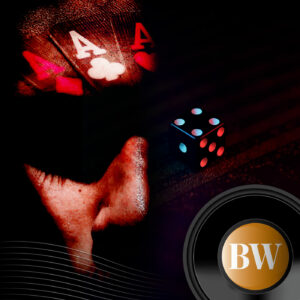[B-SIDE Podcast] High stakes: a recovering addict’s journey

Follow us on Spotify BusinessWorld B-Side
Reagan, a recovering gambling addict who has been sober for 11 years, has been jailed, institutionalized, kidnapped, and held at gunpoint.
In this B-Side episode, he tells BusinessWorld reporter Patricia B. Mirasol about addiction, support systems, and the lifelong journey to recovery. “I can’t say I’m cured because every day is a struggle. Every day I can relapse,” he said. “By saying I’m a recovering addict, there’s a humility. That’s step one: to admit that we are powerless over gambling and that our lives have become unmanageable.”
TAKEAWAYS
‘One bet is too many. A thousand bets are too few.’
“Nothing can beat that first high—you’re going to constantly chase that first high,” said Reagan. “I got caught in the thrill of the chase. The more I lost, the stronger my motivation to play again.”
Reagan started gambling on an incentive trip to Las Vegas when he was 23. His initial bet of $1 won him $18,000.
Gambling addiction refers to the compulsive urge to gamble. It is categorized as a substance-related and addictive disorder in The Diagnostic and Statistical Manual of Mental Disorders, 5th edition (DSM-5)—the first recognized non-substance behavioral addiction.
Gambling is not a ‘lesser’ addiction. It is driven by emotion rather than finances.
Gambling addicts believe that they are better than other addicts, such as those who are hooked on narcotics, because no manifestation of the addiction exists on their bodies.
Time in rehabilitation, however, dispelled that notion for Reagan.
“In reality, I was much worse,” he told BusinessWorld. “I was creating my own addiction juice. I didn’t even need a substance to create this addiction,” he said in the vernacular. “I was worse than those other types of addicts, because the addiction was in me.”
Reagan said faith, family, and the 12-step program helped him learn more about himself.
Created by Alcoholics Anonymous, 12-step programs are peer support groups that help people recover from substance use disorders, behavioral addictions, and mental health conditions.
The correct term is ‘recovering addict,’ and not “recovered addict.”
Recovering is the correct word when referring to an addict on his/her way to recovery, and not recovered. The distinction evokes humility, Reagan said. It also implies that the journey is ongoing, and that tomorrow ushers in a new day.
“I can’t say I’m cured because every day is a struggle. Every day I can relapse,” he explained. “It’s [actually] a joke for us to say, ‘I’m recovered. I’m cured.’”
Anti-gambling campaigns shouldn’t proselytize or agitate.
Reagan pointed to a Facebook meme that showed a gambler who exchanged his four-wheel drive for a tricycle as a result of his addiction. “That’s a reality,” he said, adding that that non-combative humor is better received than preachy warnings.
Awareness campaigns are more effective when they reach their audience before the act of betting, he continued. “Because the moment they start betting, tapos na ’yun [that’s it]. They can recover afterwards, when they already feel lost.”
Reagan advised those who feel they are struggling against these urges to search online for specific hashtags such as #gamblingsolution or #gamblingfellowship as there are anonymous groups that can help with gambling recovery in the Philippines.
Recorded remotely in May 2022. Produced by Earl R. Lagundino, and Sam L. Marcelo.
Follow us on Spotify BusinessWorld B-Side




